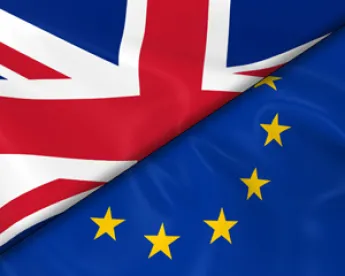On June 23, 2016, the UK voted in a referendum to leave the European Union (EU). Prime Minister David Cameron resigned the next day, and Theresa May took office on July 13, 2016. While the process for withdrawal from the EU is set out in Article 50 of the Lisbon Treaty, P.M. May has said that she will not begin the withdrawal process before the end of 2016. Needless to say, there is a long way to go. Indeed, some experts anticipate that the process could take ten years to complete.
What will the implications be for employment law in the UK? Much will depend on the future relationship between the UK and the EU. P.M. May's Brexit Secretary, David Davis, has said his ideal outcome would be tariff-free access to the single market. While observers wait to see the details of the UK’s negotiating position, it is safe to say that the UK’s relationship with Europe will depend on the UK maintaining some level of compliance with the EU regime, which may well include employment law, as well as the handling/treatment of data security, trade secrets and confidential information.
In the meantime, it will for the most part be business as usual, and our message to employers is not to panic.
Much of EU employment law is firmly embedded in the UK's national consciousness. Indeed, the UK has often been ahead of the EU in terms of employment law (for example, in the right to paid holidays and paid maternity leave). There is no reason to believe that businesses are champing at the bit to scale back workers' rights, nor do we expect to see root-and-branch rewriting of legislation. Put another way, nobody believes that the government will attempt to revoke the Equality Act so that employers are free to discriminate against someone because of being pregnant or gay.
The UK’s departure from the EU will, however, give the UK more control over its employment legislation and open the way to a more flexible and less regulated regime. For example, the government may scrap certain pieces of EU-derived employment legislation that never sat well with or became properly embedded in UK law, such as:
-
limits on working time and weekly maximum limits on working hours;
-
certain complex and technical aspects of statutory holiday rights (including the European requirement that workers on sick leave and maternity leave continue to accrue holiday) and in relation to on-call time and compensatory rest time;
-
the Agency Workers Regulations;
-
certain aspects of the Transfer of Undertakings Regulations; and
-
certain provisions relating to collective consultation requirements, and obligations in respect of works councils and information and consultation bodies.
Another hot topic for employers is how the right of free movement of workers between the UK and remaining EU member states will be affected. This of course could have consequences on the ability of employers to manage a skilled and experienced cross-border workforce. Again, this very much depends on what the relationship between the UK and the EU looks like after Brexit, and, in particular, whether the UK retains access to the single market, one of the considerations that makes Britain attractive to U.S. employers.
If the process so far has taught us anything, it is that predictions are dangerous, and that employers will have to wait and see.




 />i
/>i

